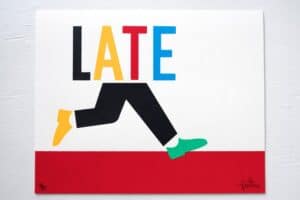We hate mistakes. Well, our own to speak of. Last week, we said that General Eisenhower was elected to the Presidency in the 1940’s. We were wrong. It was in the 1950’s as one of our astute readers pointed out. We said, “Oh shoot, a typo” and thanked her. It proved once again that we are humans, not robots. Maggie’s Dad never liked Eisenhower which was one of Maggie’s earliest political memories. Her Dad said that he played too much golf! Imagine if her Dad had been around for four years of Trump who, by the way, did not even show up for the 9/11 remembrance last week and has never admitted to making any mistakes. No apologies there!
Apologizing or saying that you are sorry or accepting that you have made a mistake shows regret and suggests a sense of conscience. Mistakes can improve learning and are merely an opportunity to grow as a person. One can admit to it, thank others who have pointed out the error, and move on. If done properly, it can actually create a strong bond between the one having made the mistake and the person who recognized it. Like someone who cares enough about you to point out that you have spinach in your teeth. Yikes!
When we all were very young, we crawled as we began to learn to walk. We fell, got up, fell again, held on, and got up again. Because, if we did not get back up, we would have had to live our lives on all fours. Take for instance this Walt Disney story:
“When Disneyland opened in 1955, it was a disaster. Although 15,000 visitors were expected, nearly twice as many descended upon the park, thanks to thousands of counterfeit tickets. Guests were plagued by long lines, malfunctioning rides, and a shortage of food. To top it all off, a tiger and a panther escaped from the circus, terrifying children and parents on Disney’s suddenly family-unfriendly Main Street. The day having been dubbed “Black Sunday” by his employees, Walt Disney took it all in stride. “If you do big things, you make big mistakes,” he told reporters.” – Youki Terada
Neurological research states that making a mistake is actually a good thing and an opportunity for our brains to grow. So, if you are looking for a way to build your brain power, next time you make a mistake, admit it, and move on. And thank the kind person who helped you get through it.
“We are called to be architects of the future, not its victims” – R. Buckminster Fuller



